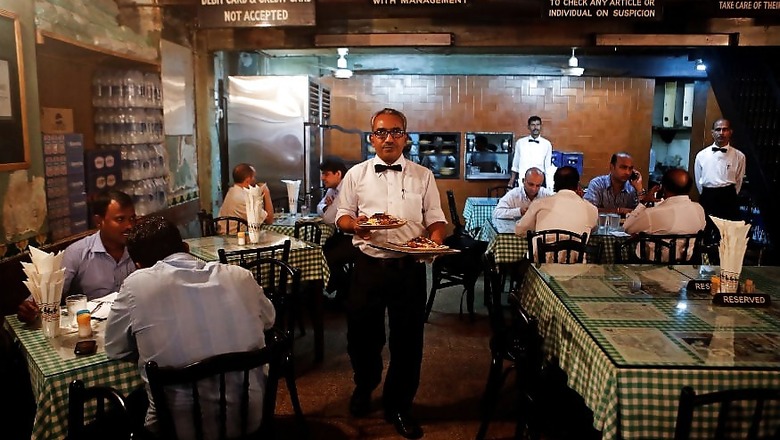
views
New Delhi: Selling bottled mineral water above the maximum retail price (MRP) will attract monetary penalty and jail term for the management of restaurants, hotels, multiplexes etc, the central government has told the Supreme Court.
Not only is it against consumer interest, but charging over and above MRP may also lead to tax evasion, the government has said.
"Sale of packaged water over MRP by hotels and restaurants may have implications regarding tax evasion as a bottle purchased by a hotel at cost price, which should be sold at MRP or less, is being sold at much higher prices, leading to possible loss of additional revenue to the government in the form of service tax or excise duty etc.," said the government.
Submitting its affidavit in response to a petition filed by the Federation of Hotel and Restaurant Associations of India (FHRAI), the Ministry of Consumer Affairs has maintained that overcharging for pre-packed or prepackaged products was an offence under the Legal Metrology Act.
Section 36 of Legal Metrology Act states that anyone caught selling, distributing or delivering any pre-packaged commodity that does not conform to the declarations on the package shall be punished with fine up to Rs 25,000 for the first offence.
It can increase to Rs 50,000 for second offence and subsequent offences can attract a fine of up to Rs 1 lakh or imprisonment for one year or both.
The affidavit has been submitted by the government in an appeal filed by the hotel association against a Delhi High Court ruling.
A bench headed by Justice Rohinton F Nariman will take up the matter for hearing on Tuesday.
A division bench of the High Court had in August 2015 upheld the government's authority to initiate prosecution against restaurants and hotels for selling bottled mineral water above MRP under the 2009 Act.
The High Court had further clarified that the order by a single judge bench, which permitted overcharging on the ground that a customer visits a restaurant to essentially enjoy ambience and other facilities such as air conditioning, will not act as a precedent and will also not come in the way of cracking the whip for charging above MRP.
The HC division bench had recorded a concession granted by the government that since the old law of 1976 has been replaced by 2009 Act, the authorities would not go ahead with the prosecution based on notices sent under the old law.
The government, at that time had however, clarified that the power of prosecution has been saved under the new Act but the concession was being offered as a matter of their discretion.
The hotel body later moved a review petition against the High Court order but it was dismissed, prompting the FHRAI to move the top court.
Filing its counter affidavit, the Consumer Affairs Ministry has now asserted its power to launch prosecution against the hotels and restaurants for charging prices higher than MRP.
It said that the rules for pre-packed products were made to protect consumer's interest and letting hotels charge above MRP may result in evading taxes from the government as well.
"The matter regarding charging over MRP is very serious and multiple complaints/ representations/ suggestions have been received from the public, consumer organisations and Members of Parliament," said the Ministry.
It pointed out that hotels and restaurants indirectly enjoyed brand value of water supplied by Bisleri/Kinley/Aquafina and other brands, which have been created over time and involved massive investments in terms of human resources, capital and technology, and therefore, the hotels cannot be permitted to charge higher than MRPs for these very products.
The Ministry said that if the prepackaged commodity is sold as it is, which includes opening of bottle in front of consumer to serve or pour the water, cold drink or any other beverage, then the product must come with mandatory declarations regarding its content, quality, manufacturing date etc so as to help a customer make decision.
About a Kerala High Court order approving overcharging on soft drinks, the government has clarified that this order has been appealed against and therefore, it could not be cited as a legal precedent. The Ministry said that the hotel body was free to challenge the provisions of the 2009 Act but their appeal should be dismissed in this case.













Comments
0 comment